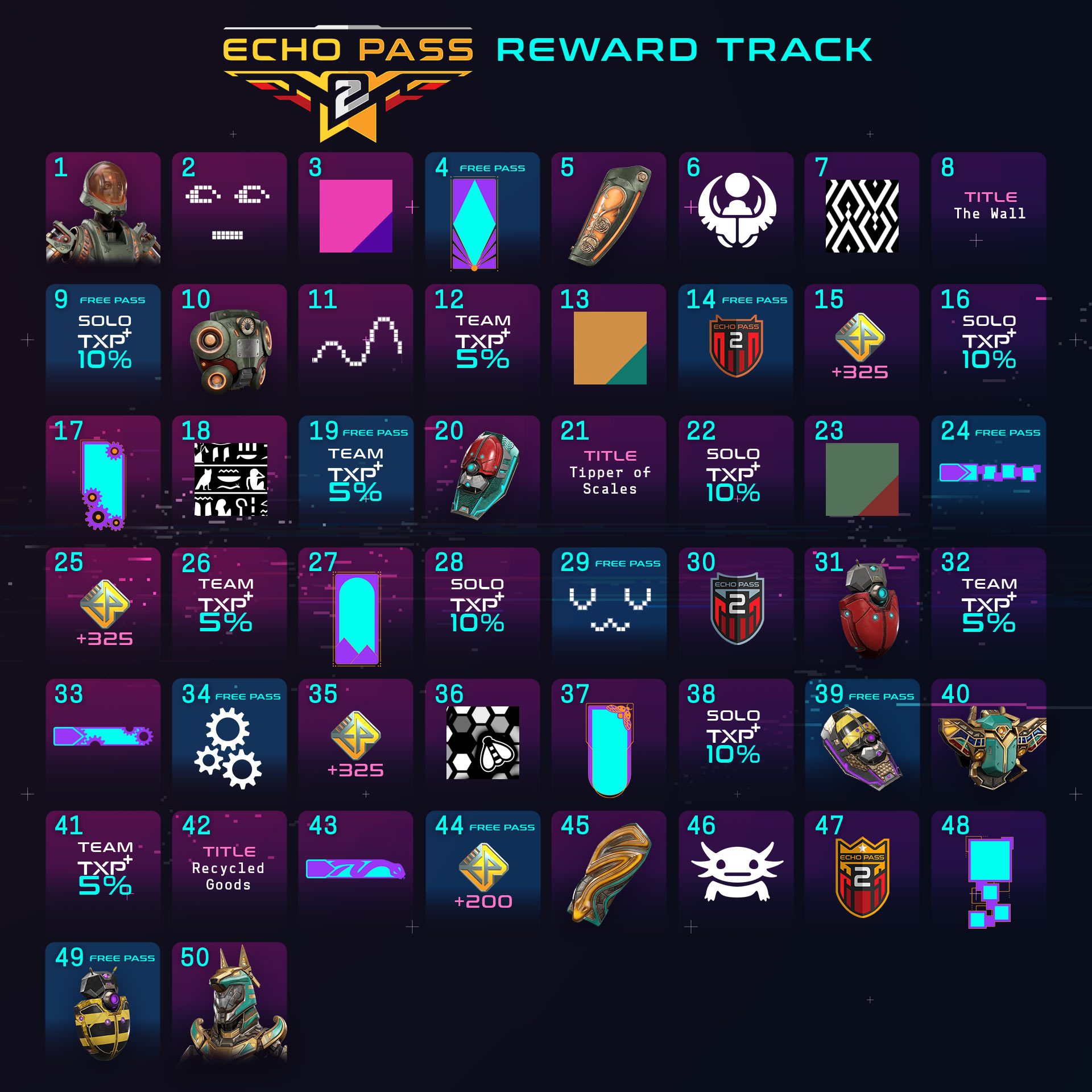Echo VR (2017), the zero-gravity sports game for Quest and Rift, has just started its second ‘Echo Pass’ season, which for a limited time lets players nab limited-time cosmetic rewards earned through playing matches. It’s open to everyone, although users with the paid Premium Echo Pass can skip the line and go straight for the gear.
Echo VR (formerly called Echo Arena) was originally planned to be sold for $20, but was made indefinitely free thanks to a partnership with Oculus. Developer Ready at Dawn, which was acquired by Facebook in 2020, has recently focused on funding development with a monetization model that offers its users the chance to grind or buy cosmetic-focused reward tiers.
Launching on June 8th and ending on August 22nd, the studio brings Echo Pass Season 2 to Oculus Quest and Rift players, letting them earn cosmetic items across 50 reward tiers. Ready at Dawn says this includes character customizations, heraldry, personal Tier Experience Points (TXP) boosts, group TXP boosts, and Echo Points.
Here’s a look at some of the stuff you can earn (or buy) during the Echo Pass Season 2. There’s new boosters, bracers, banners, emblems, and tags—many of them in splendiferous new colors and styles, and a few seemingly inspired by Ancient Egyptian mythology like the cool scarab booster and Anubis helmet.

Like the game’s first season of Echo Pass back in March, TXP is earned by playing matches, which then unlocks those sequential reward tiers.
Alternatively, you can buy an ‘Echo Pass Premium’ with 1,000 ‘Echo Points’, which can be purchased as add-on content through the Oculus Store. With the premium pass, you can then unlock specific reward tiers in 200-point bundles. Here’s how that converts into actual cash.
- $5 – 500 Echo Points
- $10 – 1,000 Echo Points +50 Bonus = 1,050 Total Echo Points
- $20 – 2,000 Echo Points +140 Bonus = 2,140 Total Echo Points
- $50 – 5,000 Echo Points +450 Bonus = 5,450 Total Echo Points
Ready at Dawn says it will be offering more ways to redeem Echo Points at some point later this year. Like with its battle passes, as long as that monetization model doesn’t hurt balance and keeps people engaged, you might see it as an overall win since players regularly return for new content and the studio stays engaged in further development.






